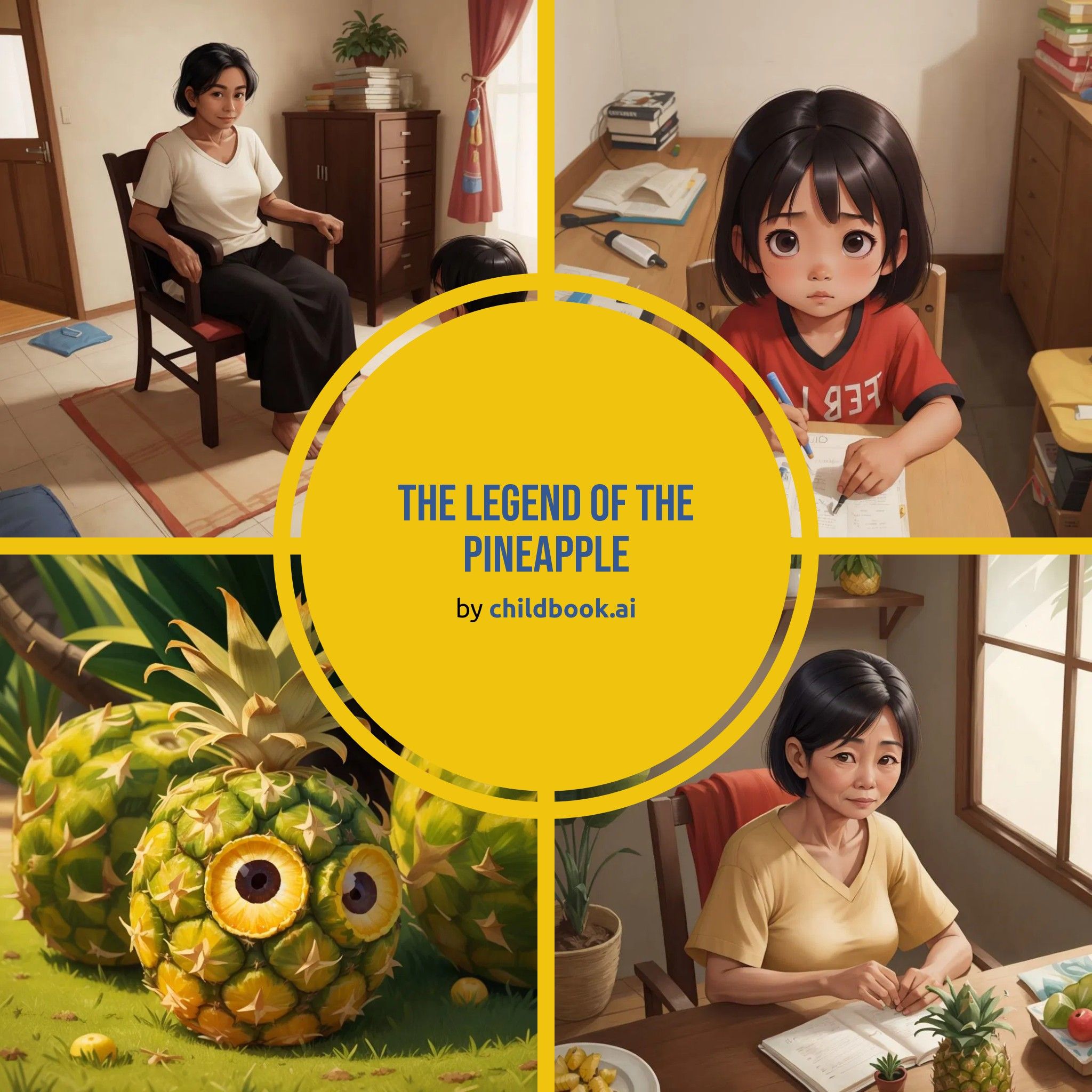

In a distant place, there lived a mother named Aling Rosa and her daughter, Pinang. Aling Rosa was a kind woman, but she fell ill and couldn't do much around the house. Because of this, Pinang was often pampered and neglected. She didn't learn how to do chores or take care of herself. As time went by, Aling Rosa's illness got worse, and Pinang had to stay home more often.

Pinang found it hard to do things on her own. She didn't know how to cook, clean, or even find things around the house. One day, she asked her mother where her favorite toy was, but Aling Rosa was too weak to help. Frustrated, Pinang kept asking questions, making her mother even more upset. Aling Rosa, in her anger, wished that Pinang had many eyes to see everything for herself.

The next morning, Pinang was nowhere to be found. Aling Rosa searched everywhere but couldn't find her daughter. She cried and cried, regretting her harsh words. While searching the yard, she noticed a strange plant growing. The plant bore a fruit that looked like a human head surrounded by eyes. Aling Rosa realized her wish had come true in a way she never wanted.

Aling Rosa decided to take care of the plant, hoping it would bring some comfort. She named the plant Pinang, in memory of her daughter. Over time, people began to call the fruit Pinya, which means pineapple. Aling Rosa shared her story with everyone, teaching them to be careful with their words. From that day on, the pineapple became a symbol of love and regret.
--:--
--:--
0/4